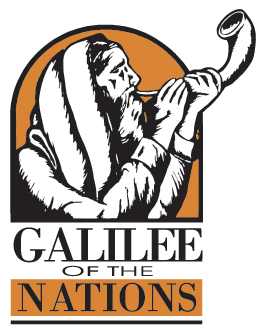
The Mystery of the Hanukkah Oil
Share
The Miracles, Mysteries and Histories of Hanukkah | Part 4
The Mystery of the Hanukkah Oil
In Part 2, we touched on the miracle of the burning oil and how, against all odds, the Menorah in the temple stayed burning for eight consecutive days in spite of having oil to last only for one. The "Festival of Lights"--another name given to commemorate this special time, accompanying "The Feast of Dedication," an appropriate title recalling the rededication of the Temple--was birthed after this remarkable act of God on behalf of His people.
In addition to the historical records provided in the Book of Maccabees, much of the tradition we have about Hanukkah comes from the Talmud. And even in the Talmud, little is said about the holiday. Of the few mentions that are made there (i.e. Shabbat 20a, 21b), the focus is almost entirely on this miracle of the oil. John Parsons observes that this is likely because by the time the Talmud was written, the Maccabean dynasty--out of which came the Sadducees--had become entirely corrupt. The writers of the Talmud--coming from a Pharasaic tradition--may have therefore intentionally diverted attention away from the mighty exploits of the Maccabees and focused instead on the oil miracle.
A couple of interesting Biblical insights about the oil and the lights: First, it is suggested by Jewish Sages that, because the 25th word of the Torah is ???? pronounced "Or," the Hebrew word for "light" (see Gen. 1:3), the "Festival of Lights"--which falls on Kislev 25--is there being alluded to, even in those opening verses of the Torah. Second, we discover in Leviticus 24:1-2 the injunction to "bring clear oil from hand-crushed olives to keep the menorah burning constantly." Because these words fall almost immediately after the enumeration of the Jewish Moedim (Festivals) in Leviticus 23, this could be-- according to many scholars--yet another mysterious foresight of Hanukkah in the Torah.
Rabbi Benjamin Blech, a Professor of Talmud at Yeshiva University, notes additional symbolism of the oil, which to many has “become the ultimate symbol of the Hanukkah miracle.” On the physical characteristics of oil, Blech writes:
Oil is probably the most politically incorrect of all liquids. It simply refuses to compromise its uniqueness. If oil were a person it would almost certainly be condemned for its stubborn unwillingness to blend in with others. It chooses to remain aloof, separate and distinct. Mix it with water and it stays apart and maintains its own identity. No matter how hard you try, oil stays true to itself and just won't assimilate.
Blech then explains that the conflict between the Syrian Greeks and the Maccabees was unlike any other war. More than a battle over territories or commodities, this conflict was about a “clash of cultures.” On the one side, you had a Jewish culture that embraced a monotheistic faith and adherence to God-given moral, civil, and ceremonial laws; and on the other, a Greek culture who viewed the Judaistic ways as a threat to
...[the Greek] commitment to hedonism...infatuation with the body…[and] obsession with athletic competitions to prove superior worth. In these they found beauty – and the very meaning of life...What the Greeks worshiped was the holiness of beauty. What the Jews wanted to teach the world instead was the beauty of holiness.
Going back to the oil analogy, Blech asserts that:
...the victory of the Maccabees was the triumph of those who exemplified the unique characteristic of oil and refused to assimilate, and instead chose to remain steadfast in our mission to bring the moral vision of Judaism to the world.
Now, Blech is certainly on to something. Yet as Messianic believers we know there to be an even deeper and richer significance of that oil, namely its symbolism of the Ruach HaKodesh (The Holy Spirit) who now indwells the people of God (see, for example, Yeshua’s words in Matt. 25:1-13).
And it is He, the Third Person of the Godhead, who sets us apart from the world, empowering us to bring the Yeshua's Gospel to all peoples. We know that it is only through Yeshua that we are able to, in Blech’s words, “teach the world...the beauty of holiness.”
So while we praise God for the miracle of the oil at Hanukkah--and oh, what a miracle, indeed!--let us also thank “God who strengthens us...in Messiah (The Anointed One) and has anointed us. He has also sealed us and given us the Spirit as a down payment in our hearts” (2 Cor. 1:21-22).
Join us for Part 5 of The Miracles, Mysteries and Histories of Hanukkah entitled: Yeshua our Light and our "Shamash"
